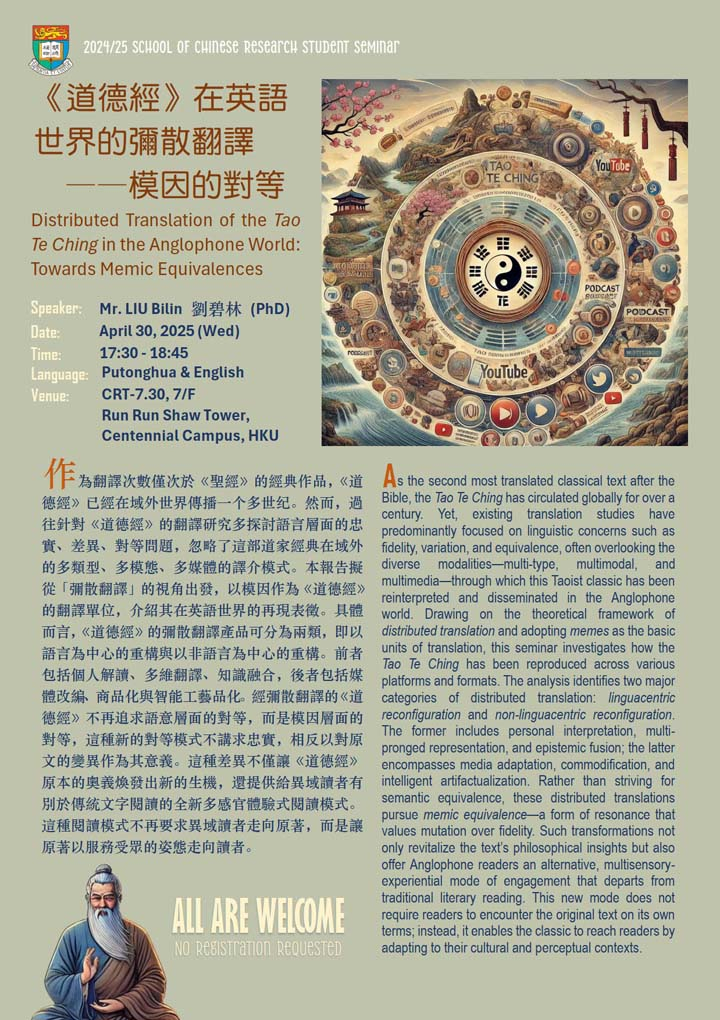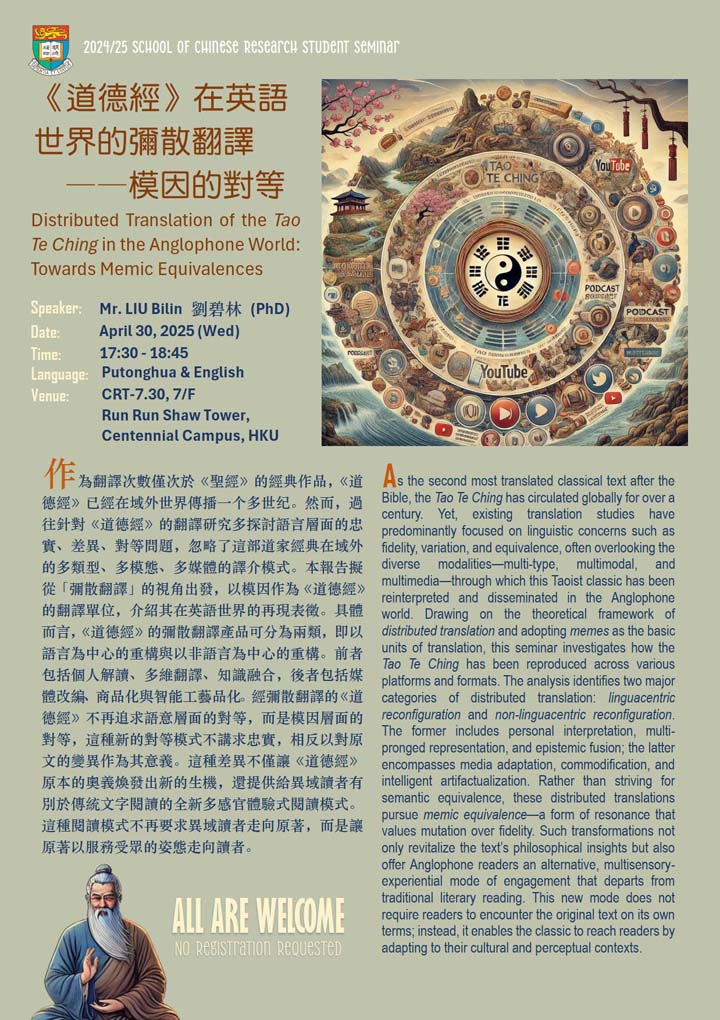《道德經》在英語世界的彌散翻譯——模因的對等 Distributed Translation of the Tao Te Ching in the Anglophone World: Towards Memic Equivalences

2024/25 School of Chinese Research Student Seminar
《道德經》在英語世界的彌散翻譯——模因的對等
Distributed Translation of the Tao Te Ching in the Anglophone World: Towards Memic Equivalences
Abstract:
作為翻譯次數僅次於《聖經》的經典作品,《道德經》已經在域外世界傳播一个多世纪。然而,過往針對《道德經》的翻譯研究多探討語言層面的忠實、差異、對等問題,忽略了這部道家經典在域外的多類型、多模態、多媒體的譯介模式。本報告擬從「彌散翻譯」的視角出發,以模因作為《道德經》的翻譯單位,介紹其在英語世界的再現表徵。具體而言,《道德經》的彌散翻譯產品可分為兩類,即以語言為中心的重構與以非語言為中心的重構。前者包括個人解讀、多維翻譯、知識融合,後者包括媒體改編、商品化與智能工藝品化。經彌散翻譯的《道德經》不再追求語意層面的對等,而是模因層面的對等,這種新的對等模式不講求忠實,相反以對原文的變異作為其意義。這種差異不僅讓《道德經》原本的奧義煥發出新的生機,還提供給異域讀者有別於傳統文字閱讀的全新多感官體驗式閱讀模式。這種閱讀模式不再要求異域讀者走向原著,而是讓原著以服務受眾的姿態走向讀者。
As the second most translated classical text after the Bible, the Tao Te Ching has circulated globally for over a century. Yet, existing translation studies have predominantly focused on linguistic concerns such as fidelity, variation, and equivalence, often overlooking the diverse modalities—multi-type, multimodal, and multimedia—through which this Taoist classic has been reinterpreted and disseminated in the Anglophone world. Drawing on the theoretical framework of distributed translation and adopting memes as the basic units of translation, this seminar investigates how the Tao Te Ching has been reproduced across various platforms and formats. The analysis identifies two major categories of distributed translation: linguacentric reconfiguration and non-linguacentric reconfiguration. The former includes personal interpretation, multi-pronged representation, and epistemic fusion; the latter encompasses media adaptation, commodification, and intelligent artifactualization. Rather than striving for semantic equivalence, these distributed translations pursue memic equivalence—a form of resonance that values mutation over fidelity. Such transformations not only revitalize the text’s philosophical insights but also offer Anglophone readers an alternative, multisensory-experiential mode of engagement that departs from traditional literary reading. This new mode does not require readers to encounter the original text on its own terms; instead, it enables the classic to reach readers by adapting to their cultural and perceptual contexts.








